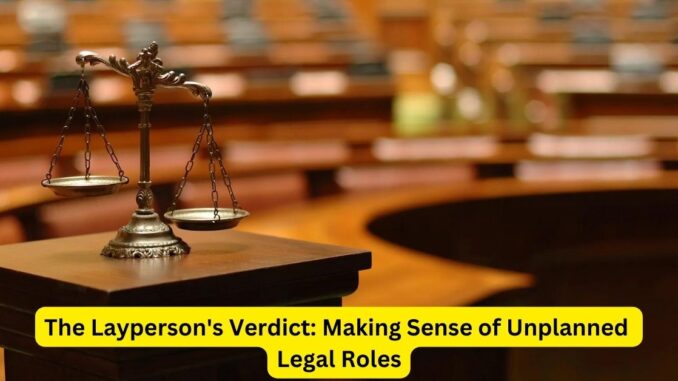
In a legal landscape often dominated by professionals and experts, the emergence of unplanned legal roles taken on by laypersons introduces a new dimension to the intricate world of law. These unexpected actors navigate legal complexities with a fresh perspective, offering insights that challenge traditional norms and enrich the field in unforeseen ways.
Consider Jane, a small business owner, who found herself at odds with a corporate giant over a trademark dispute. In the absence of a legal background, Jane embarked on a journey of self-education. As she delved into trademark law and litigation procedures, she uncovered strategies and nuances that eventually helped her secure a favorable outcome. Jane’s triumph demonstrates that determination, coupled with a willingness to learn, can lead to impressive results even in the absence of formal legal training.
Likewise, Sam, a tenant facing an unjust eviction, inadvertently became an advocate for tenant rights. Fueled by a sense of injustice, he took it upon himself to research relevant laws and regulations. Sam’s tenacity not only secured his own housing but also inspired him to educate others about their rights. His unplanned legal journey highlights the potential for laypersons to become champions of justice in their own communities.
These layperson legal roles are not just about individual stories; they reshape perceptions about who can contribute to the legal dialogue. Traditional legal expertise is invaluable, but these unexpected players offer fresh perspectives that are rooted in practical experiences. Their insights challenge established conventions and can lead to more holistic and inclusive legal frameworks.
Furthermore, the rise of layperson legal roles reflects the democratization of legal knowledge. The proliferation of online resources and accessible information empowers individuals to engage with the law in ways that were once reserved for legal professionals. As a result, the legal landscape becomes more transparent, equitable, and responsive to the needs of ordinary citizens.
The contribution of laypersons to legal matters also prompts a reevaluation of communication and accessibility within the legal field. Their presence encourages legal professionals to bridge the gap between complex legal jargon and comprehensible language. Clear communication becomes imperative when engaging with those who lack formal legal training, ensuring that legal processes are transparent and understood by all.
However, the involvement of laypersons in legal roles also raises important considerations. While their passion and dedication are commendable, there are limitations to what can be achieved without formal legal expertise. Legal systems are intricate, and some matters require in-depth knowledge to navigate effectively. Collaborations between laypersons and legal professionals can harness the strengths of both sides, creating a symbiotic relationship that blends practical experience with legal acumen.
The layperson’s verdict on unplanned legal roles is a testament to the potential of ordinary individuals to shape legal narratives and drive change. As we celebrate their contributions, we must also recognize the evolving nature of the legal landscape. With the rise of these unplanned legal actors, we witness the democratization of legal knowledge, the amplification of diverse perspectives, and the realization that the law truly belongs to everyone.
Leave a Reply